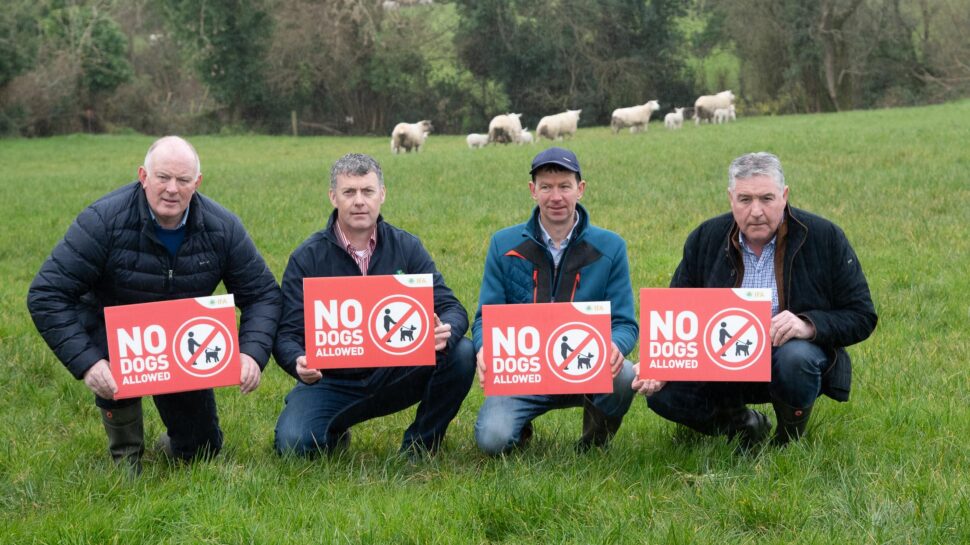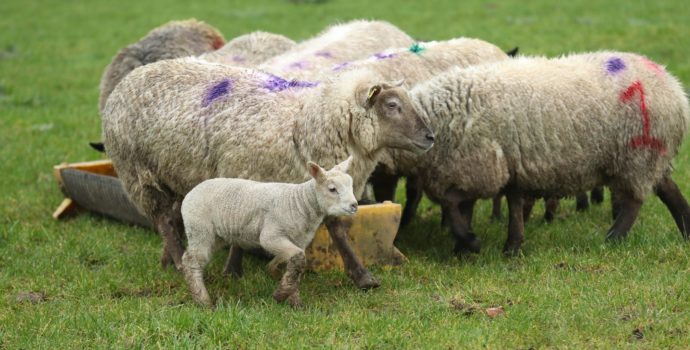Sheep Council Report March 2025

- Market Report
- Lamb Price: Spring Lambs are making €8.90kg to €9.20kg on weights to 23kg. Cull Ewe prices are ranging from €4.80 to €5.20kg in general.

Supplies: Total throughput to date in 2025 is 351,285 head which represents a 21% decrease when compared to the same period in 2024. Hogget throughput is running 84,464 head or 22% behind the same period in 2024. Ewe and Ram throughput is running 15,095 head or back -33% from the same period in 2024.

- Market Conditions; Hogget prices have remained relatively steady over the past number of weeks with current demand for hoggets underpinned by tight supplies of sheep for processing, a trend that is replicated across the UK and EU markets. A reduction in breeding flocks across Ireland and the EU has also contributed to this current tightness in supplies for processing. NZ lamb supplies are running over 7% behind the same period last year. The Australian ewe flock has peaked with declines expected in the short to medium term. Improved Chinese demand has helped global demand in recent months however NZ are losing market share and using more EU quota but remains well below historical levels. Sheep meat outlook remains positive for the coming weeks with the Ramadan, Easter and Eid al-Adha contributing to the demand in trade over the coming weeks.
- Live Export: Live sheep exports for 2024 was 47,234 head.
- Review of Bord Bia Origin Green Producer Standard
- IFA continue to engage with Bord Bia on the Origin Green Producer Standard review.
- IFA have raised concerns at the direction of travel of the Bord Bia proposals in relation to all elements of the standard and of the inspection process.
- Further direct engagement with Bord Bia on the issue is planned.
- IFA are demanding a simplified more farmer friendly audit process to reduce the burden of the scheme on farmers.
- Sheep Improvement Scheme
- 18,627 applications have made applied to the scheme accounting for 1.9m ewes.
- IFA successfully secured an amendment to the Genotyped ram action allowing farmers to choose an alternative year if unable to secure a 4/5 star ram in the year nominated.
- The availability of 4/5 star rams continues to be a concern, 2025 is the last year in which some farmers must carry out this action.
- IFA have asked DAFM and SI to assess the numbers of 4/5 star and parentage verified rams that scheme participants will require this year
- IFA are seeking changes to the retention period in the scheme.
- Balance payments will be issued to farmers in May 2025.
- National Sheep Welfare scheme 2025.
- IFA secured €22m for a new sheep scheme for 2025.
- IFA met the DAFM regarding the new scheme and put forward proposed measures and voiced concerns on some issues within the proposed terms and conditions.
- Payment rates will increase by €5/ewe bringing total payments to €13/ewe and total ewe payments to €25/ewe including the sheep improvement scheme
- The reference number should be established similar to the 2024 scheme, the higher number of the previous 3 years census returns or 2024 census.
- The reference number should also take into account the numbers of breeding lambs/hoggets retained on the holding with payment in the scheme also made on these animals.
- The scheme is based on two categories of actions, with two actions from category A costed at €4/ewe and category B €5/ewe. Participants will select two actions from category A and one action from category B to receive the full €13 payment.
- Proposed category A actions are shearing, Body Condition Scoring or clostridial vaccination with the category b actions providing the option to select foot bathing or plunge dipping.
- The scheme is expected to open for applications in Q1 2025 with full payment to be made in December 2025.
- Early-stage support for producer organisations
- IFA engaged with the DAFM on the newly proposed scheme in February.
- The scheme has been sent for DPER approval and is expected to open to application in 2025.
- IFA has demanded all existing lamb producer groups are eligible for this support.
- Dog Control
- IFA relaunched the No Dogs allowed campaign in February.
- IFA continue to engage in the dog stakeholder group to advance dog control issues. The next meeting is scheduled for April.
- Advancements to date; Banning of certain dog breeds; Targeting neutering scheme to be implemented in 2024.
- IFA set out its key priorities to the group which will be progressed over the lifetime of the group.
- Committee members continue to promote the ‘No Dogs allowed’ campaign in their local regions and have been active lobbying local TD’s and Ministers for increased sanctions for irresponsible dog ownership.
- IFA proposals include;
- A single National Database for all dogs corelating licensing and microchipping and identifying the person responsible for the dog but at a minimum alignment of the existing licensing and microchipping records to one central access point.
- Full enforcement of microchipping and licensing obligations of dog owners for all dogs.
- Stronger powers of enforcement for dog wardens and Gardaí and clarity of these powers.
- Increased on the spot fines for failing to comply with the microchipping and licensing requirements.
- Increased sanctions and on the spot fines for failing to have the dog under control.
- Significant on the spot fines for dogs found worrying livestock.
- Legal requirement for dogs to be microchipped and licensed and identified on the NVPS (National Veterinary Prescribing System) prior to any veterinary treatment or prescribing of medicines by veterinary practitioners.
- Authority to apply the legislative obligations to dogs in border regions owned by persons not resident in the state.
- Wool
- IFA continue to actively engage with the National Wool council.
- IFA continues to pursue the inclusion of shearing as an action in the new Sheep Improvement Scheme to offset the huge losses incurred for this farm practise.
- It costs approx. €8 to present a 3kg fleece rolled and packed on a farm. Costing farmers over €21m annually. Shearing costs must be directly supported to incentivise farmers carrying out this vital health and welfare measure and to ensure wool is presented in optimum condition for future added value use.



